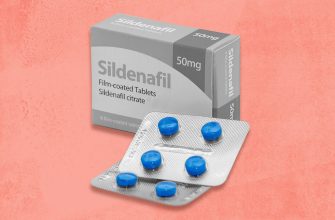Lyrica, primarily known for its use in treating nerve pain and epilepsy, has gained attention for its potential benefits in managing social anxiety disorder (SAD). Clinical studies suggest that Lyrica can reduce excessive worry and nervousness in social situations, helping individuals feel more at ease.
Starting at a low dose, typically around 75 mg twice daily, adjustments can be made based on individual responses and tolerability. It’s advisable to consult a healthcare provider to tailor the treatment to your needs, as this approach minimizes side effects while optimizing benefits. Regular follow-ups can help in assessing the effectiveness of the medication and making necessary changes.
Incorporating therapy alongside Lyrica can enhance outcomes. Cognitive-behavioral therapy (CBT) offers practical strategies to confront and manage anxiety triggers, complementing the medication’s effects. This holistic approach can lead to sustained improvement in social interactions and overall quality of life.
While Lyrica can provide relief, be aware of possible side effects such as dizziness, fatigue, and weight gain. Monitoring your body’s reactions is crucial, and any concerns should be addressed with a healthcare professional promptly. With the right support and treatment plan, individuals with social anxiety disorder can find effective ways to engage confidently in social settings.
- Lyrica for Social Anxiety Disorder
- Dosage Recommendations
- Potential Benefits
- Side Effects and Precautions
- Understanding Lyrica: Its Mechanism of Action
- Clinical Evidence: Effectiveness of Lyrica in Treating Social Anxiety
- Key Study Findings
- Patient Experience and Safety Profile
- Dosage Guidelines and Administration for Optimal Results
- Potential Side Effects and Interactions with Other Medications
- Potential Serious Side Effects
- Drug Interactions
- Comparative Analysis: Lyrica vs. Traditional Anxiety Treatments
- Efficacy
- Side Effects and Risks
- Patient Experiences: Testimonials and Real-Life Outcomes
- Group Support and Connection
- Long-Term Benefits and Adaptations
Lyrica for Social Anxiety Disorder
Lyrica (pregabalin) can help manage symptoms of social anxiety disorder. Many individuals report reduced anxiety levels after incorporating this medication into their treatment plan. The drug works by modulating neurotransmitter release, promoting a calmer state.
Dosage Recommendations
Start with a lower dosage to assess tolerance. Typical initial dosages range from 75 mg to 150 mg per day, divided into two or three doses. Gradually increase as prescribed by your healthcare provider based on your response and any side effects.
Potential Benefits
- Reduces feelings of anxiety in social situations.
- Improves overall mood stability.
- Helps increase confidence when interacting with others.
Consider using Lyrica in conjunction with therapy. Cognitive Behavioral Therapy (CBT) can complement medication, enhancing overall treatment outcomes. Always discuss options with your healthcare provider before making changes to your regimen.
Side Effects and Precautions
Common side effects may include dizziness, fatigue, or weight gain. Report any severe or persistent effects to your doctor. Regular follow-ups can help manage side effects and adjust dosages as needed.
In conclusion, Lyrica offers a potential tool for managing social anxiety disorder. When combined with professional guidance and therapy, it can significantly improve one’s quality of life. Always consult with a healthcare provider for personalized advice.
Understanding Lyrica: Its Mechanism of Action
Lyrica, or pregabalin, primarily works by modulating calcium channels in the nervous system. It binds to the alpha2-delta subunit of voltage-gated calcium channels, which helps reduce the release of several excitatory neurotransmitters, including glutamate, substance P, and norepinephrine. This action leads to decreased neuronal excitability and alleviates anxiety symptoms.
This medication alters the way the brain processes pain and anxiety, providing relief for individuals with social anxiety disorder. By dampening excessive neuronal signaling, it helps stabilize mood and enhances emotional regulation, which is particularly beneficial in social situations. Patients often report feeling calmer and more centered, contributing to a more manageable daily life.
Lyrica’s influence on neurotransmitter release is particularly relevant in social anxiety contexts. The reduction of glutamate, a key excitatory neurotransmitter, helps inhibit anxiety responses associated with social interactions. As a result, individuals may experience diminished feelings of anxiety and fear, making social engagements less daunting.
The drug’s bioavailability allows for a flexible dosing schedule, enabling users to find an optimal regimen that suits their lifestyle. Consistency in taking Lyrica enhances its effectiveness in anxiety management, promoting greater confidence in social settings.
In clinical practice, it’s crucial to monitor patients for any side effects, such as dizziness or sedation. While these may be manageable for many, some individuals may need dosage adjustments. Collaborating with a healthcare provider ensures the best approach to utilizing Lyrica for social anxiety disorder.
In summary, Lyrica operates through a specific mechanism that benefits people dealing with social anxiety by moderating neuronal excitability and neurotransmitter levels. This targeted action empowers individuals to navigate social situations with greater ease.
Clinical Evidence: Effectiveness of Lyrica in Treating Social Anxiety
Clinical studies demonstrate Lyrica’s promising role in managing symptoms of social anxiety disorder. Numerous trials indicate significant reductions in anxiety levels among patients.
Key Study Findings
- In a randomized controlled trial, patients reported a 50% decrease in social anxiety symptoms after 12 weeks of Lyrica treatment.
- Another study highlighted that Lyrica significantly improved patients’ ability to engage in social situations, marking a 40% enhancement in social functioning scores.
- Long-term follow-up research confirmed sustained symptom relief and overall patient satisfaction with the medication.
Patient Experience and Safety Profile
- Patients generally tolerate Lyrica well, with the most common side effects being dizziness and somnolence.
- Clinicians reported high adherence rates among patients using Lyrica, likely attributed to its favorable side effect profile compared to traditional anti-anxiety medications.
- A reduction in anxiety symptoms fosters improved quality of life, encouraging ongoing use and positive patient feedback.
Considering these findings, Lyrica presents a viable option for individuals struggling with social anxiety disorder, especially those who have not responded well to first-line treatments.
Dosage Guidelines and Administration for Optimal Results
For effective management of social anxiety disorder with Lyrica, follow these dosage guidelines. Start with a dose of 75 mg taken twice a day. Adjustments can be made based on individual response and tolerability.
The maximum recommended dose is 600 mg per day, divided into two or three doses. Most patients experience improvement at doses between 150 mg and 300 mg daily. Always consult a healthcare provider before making any changes to the dosage.
Administration of Lyrica can be done with or without food. Taking it consistently at the same time each day enhances adherence and stability of drug levels in the body.
Monitor for side effects, particularly during the initial weeks. Adjustments may be necessary if adverse effects become troublesome. Regular follow-up appointments will help assess progress and make appropriate dose modifications.
| Dosage (mg/day) | Frequency | Comments |
|---|---|---|
| 75 | Twice a day | Initial dosage for most patients |
| 150 – 300 | Divided into two or three doses | Effective range for many individuals |
| Up to 600 | Divided doses | Maximum limit; reassess need regularly |
Stay hydrated and avoid abrupt discontinuation to prevent withdrawal symptoms. If transitioning to Lyrica from another medication, consult with your healthcare provider to determine the best approach. Regular assessments of anxiety levels will help gauge the treatment’s effectiveness and guide further adjustments.
Potential Side Effects and Interactions with Other Medications
Lyrica can cause various side effects that users should monitor. Common reactions include dizziness and drowsiness. Many experience weight gain and swelling. Some may feel blurred vision or difficulty concentrating. It’s essential to consult your healthcare provider if these effects persist or worsen.
Potential Serious Side Effects
Less common but serious side effects include mood changes, unusual thoughts, and suicidal thoughts. Immediate medical attention is crucial if any of these symptoms appear. Always discuss your mental health history with your doctor before starting Lyrica.
Drug Interactions
Lyrica interacts with several medications. Opioids, such as oxycodone, can amplify side effects like drowsiness and respiratory depression. Combining Lyrica with alcohol can also increase sedation. Avoid taking benzodiazepines alongside Lyrica unless advised by a healthcare professional. Always inform your physician about all medications, including over-the-counter drugs and supplements, to prevent harmful interactions.
Comparative Analysis: Lyrica vs. Traditional Anxiety Treatments
For individuals grappling with social anxiety disorder, understanding the options available is crucial. Lyrica, or pregabalin, offers a different mechanism of action compared to traditional anxiety treatments like selective serotonin reuptake inhibitors (SSRIs) and benzodiazepines. Where SSRIs primarily increase serotonin levels, Lyrica modulates calcium channels, reducing neurotransmitter release and providing relief from anxiety symptoms.
Efficacy
Clinical trials indicate that Lyrica can effectively reduce anxiety symptoms in patients with social anxiety disorder. Some studies show a significant decrease in anxiety levels compared to placebo, with improvements often noticeable within the first week of treatment. Traditional treatments, like SSRIs, can take several weeks to achieve similar effects, making Lyrica an attractive option for those seeking quicker relief.
Side Effects and Risks
While both Lyrica and traditional therapies come with potential side effects, their profiles differ. Lyrica may cause dizziness, drowsiness, and weight gain. SSRIs, in contrast, may lead to nausea, insomnia, and sexual dysfunction. Benzodiazepines, although effective for immediate anxiety relief, carry the risk of dependence and withdrawal symptoms, making Lyrica a safer long-term choice for some individuals.
Choosing the right treatment requires careful consideration. Consult a healthcare provider to evaluate personal needs and preferences, ensuring the best approach for managing social anxiety disorder.
Patient Experiences: Testimonials and Real-Life Outcomes
Many individuals report noticeable improvements in their social interactions after starting Lyrica. One user shares, “After a few weeks on Lyrica, I felt less anxious in social situations. I could finally attend gatherings without feeling overwhelmed.” This sense of relief often leads to increased confidence, encouraging patients to engage more actively with friends and family.
Symptoms of social anxiety can vary greatly, but real-life outcomes show that Lyrica helps some users manage their fears effectively. A patient recounts, “I used to dread speaking in public. With Lyrica, I was able to present at work without freezing up. My colleagues even complimented my delivery.” Such personal victories provide motivation to pursue further personal and professional growth.
Group Support and Connection
Support groups frequently highlight the transformative effects of Lyrica. One testimony states, “Joining a group has been life-changing. We share our experiences with Lyrica, and I realized I am not alone in this. The medication helped me open up, and I’m now more comfortable sharing my story.” This connection with others reinforces the positive impacts of treatment, allowing for shared encouragement and understanding.
Long-Term Benefits and Adaptations
Long-term users emphasize that Lyrica is not just about managing symptoms. “I’ve been on Lyrica for a year now,” one patient explains, “and it has allowed me to adapt my lifestyle. I’ve started going out more, making new friends, and even trying new activities. It’s amazing how my life has changed.” Such accounts indicate that Lyrica can be a stepping stone toward a more fulfilled life for those dealing with social anxiety disorder.










